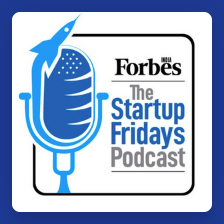Propstack Sales Guy (PSG): Hello, is this Anirudh Damani?
Me: Yes, who is this?
PSG: I am xx calling from Propstack. You had asked us to reach out to you about getting transactional data on real estate transactions.
Me: Yes, I did. I am looking out for a commercial property, and I wanted to find out about transactions that have taken place in the last 24 months.
PSG: Oh great! we have subscription plans for commercial properties that…
Me (cutting him off): No, no, I am not looking for subscription plans. Just info on a couple of places that I am interested in exploring.
PSG: Sorry, sir. We do not provide any piecemeal plans for commercial property transactions. These are considered B2B transactions, and the minimum subscription is ₹2.50 lakh/year.
Me: WHAT!!! You want me to shell out ₹2.50 lakh/year for giving transactional data for the last 2 years on 2 properties! That is ridiculous!
PSG: I know, sir, but that is our least expensive plan for Businesses. If you were looking for residential data, you would have our consumer plan and could get a plan for as little as ₹5000 for 10 transactions but sin…
Me (cutting him off again): But I am a consumer! I am not in the business of real estate; I am just trying to find out data for a real estate transaction that we are looking at conducting.
PSG: I know, sir, but in our system, that is a commercial plan, and the minimum there is ₹2.50 lakhs.
Me: This is unbelievable! I am not going to pay ₹2.50 lakh/year. I guess you can forget about this request.
PSG: Ok, sir!
I hung up
The Propstack “Office” product I was looking into promises a sort of Carfax.com report for a property that one is looking at purchasing or renting. Carfax.com was my lifeline in the US when I was buying a pre-owned car. The Propstack website promises access to the recent transactions and can provide potential buyers/renters with relevant pricing information when dealing with the landlord or seller.
The product is a no-brainer, but the Head of Sales and Product at Propstack really needs to re-evaluate their strategy
- They either do not know their target market or do not understand the relationship between price and value.
- Instead of making these reports an off-the-shelf product, i.e., with little or no internal sales contact required, they have created a process requiring salespeople to talk to potential customers intentionally! Why would anyone want to do that as a first response?
- Even if I want to buy a product, their website forces me to seek an “invite” that would get followed up on by an internal salesperson. Therefore, even the sale of the ₹5000 product requires a human touchpoint, and so does the ₹2.50 lakh product. Each touchpoint adds to sales & marketing costs, and the requirement of a human touchpoint for a no-brainer product is a mystery.
- Lastly, the massive pricing difference between purchasing data on buying/renting a home vs. the data for buying/renting an office is genuinely ridiculous!
- They could have used the ₹5,000 entry point hook to bring in the customer and then upsell different analytical offerings based on the prior purchase.
The sticker shock that I got from their outrageously priced product led me to write a blog explaining my shock. If your pricing alienates a genuine customer with a very high degree of intent to purchase – it is a sign that the product pricing strategy is clearly wrong.
The key to building an enormous sales juggernaut is creating a simple hook that drives massive sales with minimal sales support. From that sales data, one could identify opportunities for upselling or making enterprise-level plans to drive higher-margin sales.
It isn’t a mystery why carfax.com was sold for $1.4 billion in 2013. It generates $220m+ in sales with an average revenue/employee of $200,000+ even today! Now try achieving that target with a sales agent pitching a ₹ 2,50,000 product over a phone call when the ₹5,000 product looks ideally priced.
I spoke to several brokers and office buyers before writing this blog. An overwhelming majority told me about the importance of this product for them, but the price point was simply out of budget for them. The only people that could afford to keep the product were the large enterprises that (as it is) had several options to choose from.






